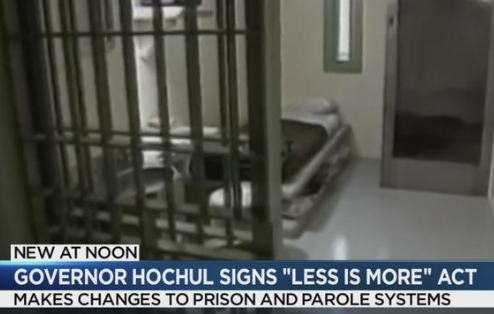Photos: Video Screenshots
Today, Governor Kathy Hochul signed the Less Is More Act, which passed the state legislature in June and will remove incarceration as punishment for nearly all minor, “technical” parole violations, like missing a meeting with a parole officer, failing a drug test, or missing a curfew.
The law will also allow people to earn early discharge from parole through good behavior.
Ames Grawert, senior counsel in the Justice Program at the Brennan Center for Justice at NYU Law, had the following comment:
“With the Less Is More Act, New York State is ending a backwards, destructive, and expensive part of the criminal legal system: no longer will it be the norm for people to be reincarcerated over minor, ‘technical’ parole violations, like missing an appointment with a parole officer. This punishment served no rehabilitative or public safety purpose, and it had devastating financial and emotional consequences on the people sent back to prison and their families. And getting rid of it will save New York taxpayers more than $600 million a year.
“Reincarceration due to technical parole violations has had a disproportionate impact on people of color. In New York City, Black and Latino people were 12 and four times more likely than white people to be jailed for technical violations. And statewide, Black people were five times more likely to be reimprisoned. The Less Is More Act will begin to right those wrongs.
“Conditions on Rikers Island have significantly deteriorated with ten incarcerated people dying this year, at least five by suicide. This legislation would ensure that individuals who pose no public safety threat and are detained in an overcrowded and understaffed jail for technical violations of parole can be released.”
The Brennan Center is a member of New Yorkers United for Justice, a bipartisan coalition that helped advance these reforms and advocates for criminal justice reforms in New York State that promote fairness, improve public safety, and reduce mass incarceration.










